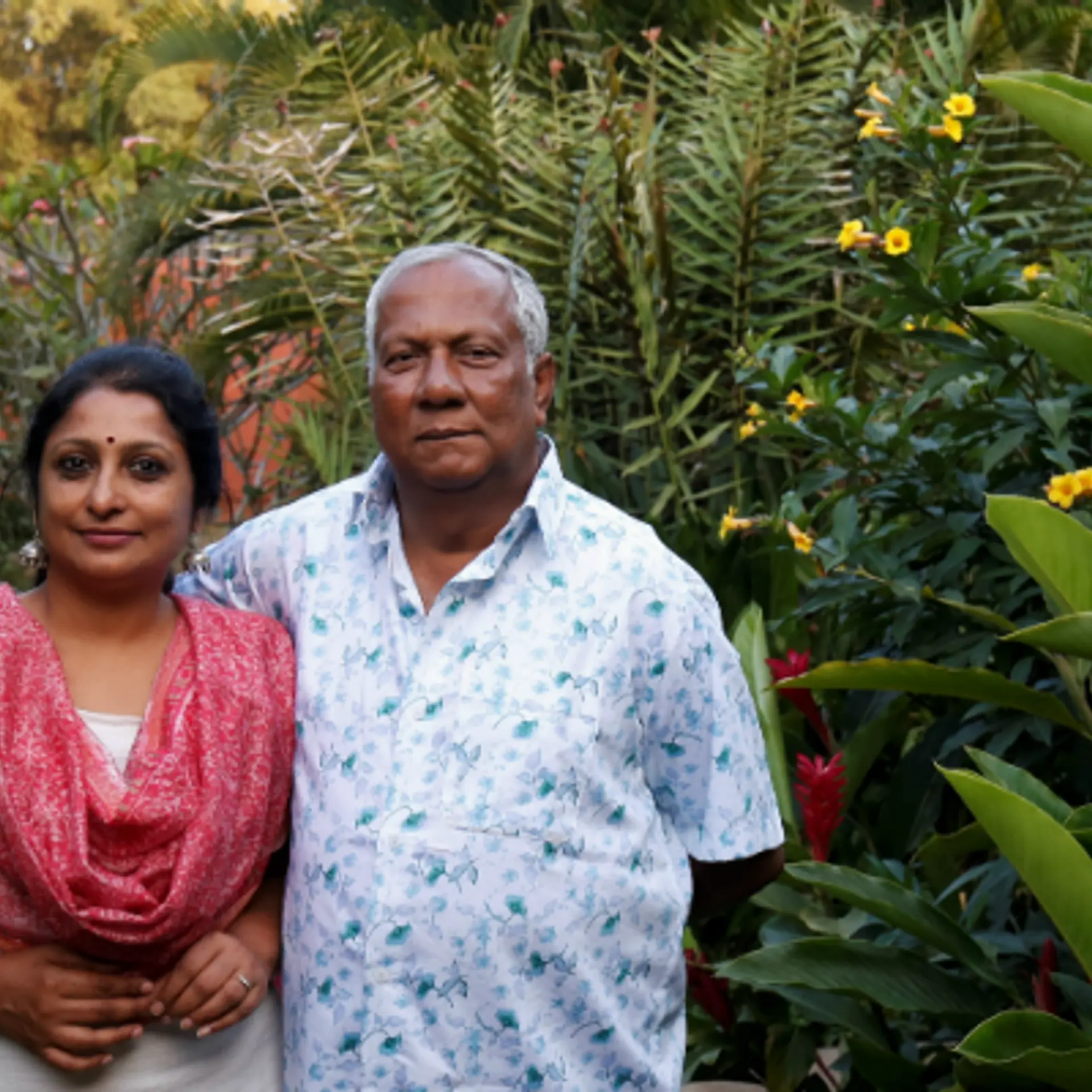This 24-year-old is selling Indian handicraft products online; made Rs 12 Cr sales last year
Launched by Ayush Baid in 2018, Ellementry is a lifestyle brand selling handicraft products online. It is the retail offshoot brand of Dileep Industries, run by Ayush’s father. Here’s how its business model works.
For 24-year-old Ayush Baid, the son of Jaipur-based Indian handicrafts exporter Dileep Baid, it was natural to become interested in handicrafts.
Watching his father run his Rs 175 crore turnover business, Dileep Industries, for three decades, exposed Ayush to the essence of Indian culture and art that was captured in handicrafts.
This motivated him to start Ellementry, a lifestyle brand selling handicraft products primarily online, in 2018. The Jaipur-based company employs artisans to manufacture handmade home products such as kitchenware and serve ware.
The B2C brand has now become the retail offshoot brand of Dileep Industries. The brand claims to have recorded Rs 12 crore in sales in 2019-20.
The journey
Ayush’s foray into entrepreneurship started when he began helping his father to promote his B2B business of handicraft exports.
One summer, as he was analysing his father’s business data, Ayush came up with a business idea. He observed that Indian handicrafts were recognised and appreciated abroad.
But there was an untapped domestic market for handmade home products, especially in the niche category of marble-glass and terracotta-wood kitchenware.
Ayush felt the need to make these products available to Indian consumers too. After all, they were representative of India’s rich cultural heritage. Ayush thought if these products will find customers India if the right retail strategy was adopted.

Ellementry's artisans working on handicrafts
Soon, he started doing research on the consumer needs and met local artisans to explore the demand for branded handicraft products.
“I was receptive to new business ideas since I was brought up in a business family. I studied at University College London (UCL), and I learnt how ecommerce and data analytics works,” he says.
“I did a thorough analysis of the market and did the required groundwork. I came up with the idea to retail my father’s handicrafts products through an ecommerce website,” adds Ayush.
The Ellementry brand
When Ayush started Ellementry, he was particular that he would sell nothing but the best handmade products. However, executing such an idea required a large amount of money.
“We pitched the idea to Bennett, Coleman and Company Limited (BCCL). We went prepared with thorough research and understanding of the market. BCCL liked the concept and invested Rs 250 crore as a Brand Capital deal. The rest of the financial support was from our family,” he says.
Ayush claims Ellementry is one of the first Indian handicraft brands to establish a direct, manufacturer-to-consumer relationship. It does not utilise middlemen, as is the norm in the Indian handicrafts industry, to move the products to the market.
The brand caters only to the Indian market, while Dileep Industries sells in international markets by directly dealing with retail buyers.
The firm first started as an ecommerce brand and received encouraging response from the market in the first year. In 2019-20, Ellementry recorded Rs 12 crore in sales, and this led the brand to open eight physical stores and expand its reach in Delhi, Jaipur, Mumbai, Bengaluru, and Hyderabad.
According to the company, the offline presence was crucial to solving a challenge it encountered early on. Despite identifying online demand for handmade home products, the touch and feel aspect played an important role in the purchase decision made by customers. Some potential customers were also unwilling to purchase every day-use handmade products if there was no assurance of their quality.
“We had to make customers believe in our products and their quality. Even though we were selling everyday items such as kitchenware, people were apprehensive about buying them online. They still wanted to touch and feel the products before buying them,” Ayush says.
Besides opening a few physical stores to address the challenge of touch-and-feel and quality assurance, Ellementry’s growth was accelerated by placing advertisements in BCCL-owned ‘The Times of India’.
“In 2020, we have made Rs 6.5 crore so far. This year, we will break even,” Ayush says.
Business model
Ellementry follows a B2C model, and sells its products via its own website as well as on Amazon, Myntra, Tata Cliq, and more. The brand also supplies to high-end boutique stores across India, and has shop-in-shop association with Foodhall, Project Eve, and Shoppers’ Stop.
Explaining the brand’s value proposition for end consumers, Ayush says, “We started Ellementry on the finding that there was a void in the Indian market for beautiful as well as useful products, primarily in the kitchenware and cookware segment. We ensured our products rank high in form and functionality. As we are an offshoot of Dileep Industries, we are able to ensure international food safety and quality standards.”
Known for its vibrant ecosystem of handicrafts manufacturing, Ellementry uses the same production line as Dileep Industries. The handmade products need less energy to make than products made on a mass production assembly line.
“This approach also creates a lot of jobs. In total, we have more than 4,000 Indian artisans working with us,” Ayush says.

Ellementry's handmade kitchenware products
He believes Ellementry’s manufacturing capabilities allows it to price the products competitively, maintain quality control, and ensure short turnaround time in production.
“We don't have to deal with unsold inventory. Instead of procuring products from outside, we manufacture them in-house as per demand. For instance, during this pandemic, work from home became the new norm. People required more work from home furniture, kitchen products, and home products. We were able to understand and meet this need quickly. We are soon launching a Work-from-Home collection,” Ayush explains.
However, employing artisans to manufacture handmade products means Ellementry’s products are slightly on the expensive side. Artisans have to complete the entire manufacturing process with their own hands, which takes time.
“Machines are not our artists - people are. Our product range starts from around Rs 290,” Ayush says.
Future plans
During the lockdown, the closure of restaurants came as a blessing in disguise for Ellementry. With home cooking becoming a hobby for many, Ayush saw the demand for attractive-looking kitchenware increasing.
“With our Instagram page and online marketing, we are tapping these consumers along with our existing customers. This shift towards home-cooked food is creating considerable spike in demand for our kitchenware and serve ware products,” he says.
Going forward, Ellementary plans to open a few stores under the franchise model. It has closed negotiations for franchises in Lucknow, Cochin, Gurugram, and Bengaluru.
Observing increasing demand for Ellementry’s products abroad, Ayush also plans to take a page out of his father’s book by selling his products in the USA and Japan. The brand is also looking to increase its number of SKUs, and venture into home furnishings and designer hardware.
“Expansion and growth of such scale require a focus on integrating data and creativity. After experimenting with our existing materials, future research will be on making robust products with cane/bamboo,” Ayush says.
Edited by Megha Reddy









